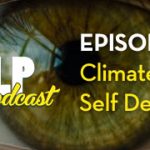Change
Change is like time, our experience of it depends on the point from which we view it.
We could say that the only thing that we can be certain of in life is that all things change, that nothing ever stays the same. We could say that one of our biggest problems is that we have to deal with the stress of change often when are forced to undergo it. We might even think that change is a fabulous stimulant and that we all need more of it, that lack of change creates boredom that paralysis the brain.
Or, perhaps we might crave to maintain the status quo and the stability of a fixed system, universe or society, where we all know where we stand, where life is predictable and there are no surprises.
Change is a strange and challenging thing.
Physical change
We know that out entire body is always changing. Every seven years we renew all the cells in or body, so that, every seven years our body is completely new. Some parts of out body are changing much quicker. The receptors in our eyes that interpret what we send and send messages to the brain function through the rods and cones of the retina as the pigments and chemical respond to the light. Many times a second the receptors are activated and then reactivated as we track the moving images around us. The body is a good indicator of change.
There is a neat trick that we call ageing. Each cell has a string on it called a telomere. As each cell reproduces the telomere becomes shorter until in the end it runs out and the reproduction ceases. This is called getting old.
Social change
This happens generation on generation as values, beliefs, ideas and even fashions change from one generation to the next. As the social compass moves we find that behaviours unacceptable a generation ago are now common place. We might change laws so that, for example, gayness that a generation ago was illegal is now celebrated. Sometimes it is the reverse as we look in horror at the behaviour of previous generations. Slavery and bear baiting are now illegal.
Intellectual change
This is driven by the intellectual thinkers. Often it is this intellectual part of human consciousness that is the precursor of social change. The intellect questions the existing order and continually asks ‘Why?’ It challenges conventions, laws and rules and demands that we look a new at who we are and what we are doing.
Emotional change
Emotional change is demanding, passionate and immediate “I want it all and I want it now”. It maybe the maternal drive that seeks to protect the family or the possessive drive that becomes attached to people and things. Change at this level is often acquisition, “I want more” and the more might be possessions, power, money or even people. Overall emotional change is about adapting the world so that ‘My’ needs are met be they driven by business of dictatorship.
Conceptual change
The key to conceptual change is that often it does not want to change at all. When it does change it happens slowly, sometimes very slowly. It may be seen is eras or epochs. Here we are looking at dynasties, and systems of control that last for many years. The ruling Empires that peak and decay as the order changes. We now see the European Global Empires coming to a close as the era of European domination comes to an end. The new era will probably belong to China, India and the Pacific Basin. In a couple of hundred years the common global language will probably have moved from English to be something like Cantonese or Mandarin.
Meaningful change
This is the sensitive realm of the intuition that drives conception or the way that we see things. A conceptual era is often driven by the understanding of spiritual philosophy. It is seen in terms of the question ‘why are we here?’ and ‘what is the meaning of life?’ These answers change and as we human beings change and, hopefully, evolve.
The Icons that change behaviour
Our leaders both spiritual and political are engaged in creating change. At anyone time in any society there will be the icon figures that people look up to for inspiration and guidance. They may be dictators such as Hitler, scientists such as Einstein, spiritual leaders or social engineers.
The Christian Era that began two thousand years ago, that peaked at a point where virtually everyone in Europe attended Church services, it has now peaked and declined so that now less than 5% of the population of the UK regularly follow church services. It is thought that the values of the Christian traditions are now being superseded by Buddhist traditions with a rise in meditation and mindfulness, vegetarianism and veganism.
Personal Change
Beyond all that is you, your change. What do you need to do to get your life online so that it works well for you. Is it that you need to maintain your status quo or do you need to embrace change to stimulate you energy? The most important thing is to act with awareness. Maintain what serves you well and change what does not serve you well.
Positive change leads to positive results and negative change leads to negative outcomes.
Be happy and become the change that you would like to see in others.
Sean x



Trackbacks & Pingbacks
[…] Sean has written a blog post to accompany this episode […]
Leave a Reply
Want to join the discussion?Feel free to contribute!